Just like the American president, the RTÉ Washington correspondent is a four-year term. “Will you be seeking re-election?” we joke with Brian O’Donovan, the Cork man who has added his own dynamic flair to the role.
“Four more years, four more years,” he laughs, indicating the many Donald Trump rallies he has covered. “I don’t believe it’s possible. This is a four-year job, a four-year adventure.”
An adventure it certainly has been. When Brian headed stateside with his wife Joanna and their daughters Lucy (11) and Erin (eight) at the beginning of 2018, he knew that covering Donald Trump’s presidency would be interesting to say the least.
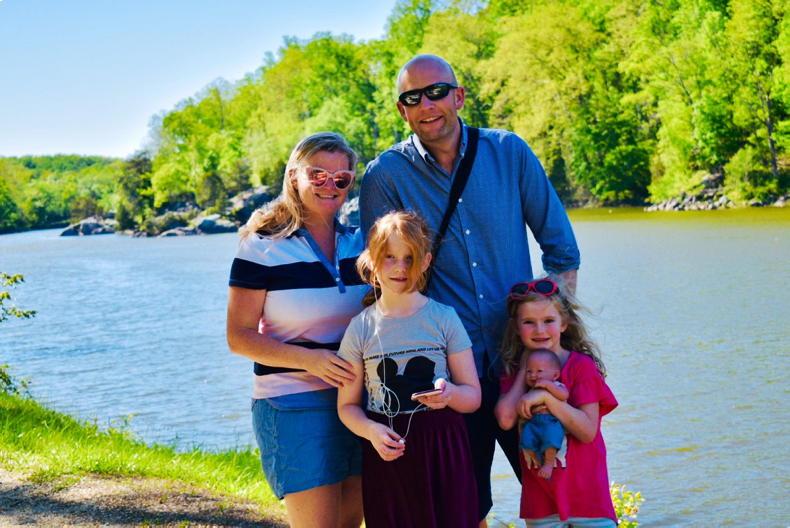
Brian O’Donovan with wife Joanna and daughters Lucy and Erin.
The reality is that he’s has had a front-row seat to watch history in the making.
Tides turning
Reflecting on his time in the role and the unpredictable nature of US politics, Brian says it was around this time last year that the tides started to turn for Donald Trump.
“In January of last year, I firmly believed Donald Trump was in with a very good chance of being re-elected. After all, we didn’t have a clear democratic candidate. At one stage, we thought it was going to be Bernie Sanders and then Pete Buttigieg won the first caucuses in Iowa. Joe Biden wasn’t doing well at all.
“And then, in the middle of this, you had Donald Trump with this booming economy. On the ground, I could see things were going well for him, people were happy.”
Then COVID-19 hit. “His handling of it was hugely criticised. He didn’t take it seriously at the start. There were crazy suggestions of ingesting bleach and then, through the really tumultuous summer of the Black Lives Matter movement when we saw such huge political unrest, Joe Biden emerged.”
Brian says that, even watching the White House drama unfold in front of his eyes, the sheer scale of unacceptance of the election results was a surprise.
Storming the Capitol
One of the days that will stand out for him as Washington correspondent is 6 January 2021: the storming of the Capitol. On that morning, Brian tweeted: “We can expect plenty of drama today when members of Congress meet to formally count the #ElectoralCollege votes and confirm @JoeBiden’s election win.” But he admits the scale of drama really was unprecedented.
“My cameraman Murray Pinczuk (a great guy from Maryland) and I started the morning with Donald Trump’s big speech outside the White House. Everyone we talked to was convinced the election had been stolen, that a wrong had been committed. Many had a belief that Trump had something up his sleeve, he was the real winner, he’s a clever guy and he is going to sort this.

Brian O'Donovan with cameraman Murray Pinczuk.
“Afterwards, we went back to the office to edit our piece for the Six One News and just as we were getting ready to head out, we saw the first of the storming of the Capitol building, we ran down the Mall and there were lots of police cars and unrest.
“I had been at lots of Trump rallies before that and, you know, Trump would do the whole spiel about the media and fake news, and ‘let’s boo the media’, which they would do. But afterwards when we talked to the people in the crowd, they were perfectly nice. It was like a pantomime of sorts.
“But that day and in the weeks leading up to it, I felt a different tone. There was anger, disillusionment, disappointment and real frustration. That day, the hope that he had something up his sleeve and the subsequent disappointment when people realised the result wouldn’t be overturned was palpable.”
Which led to one of the most unique inaugurations ever in the US: an inauguration without a crowd. “Two-hundred thousand fluttering flags representing the 200,000 people that usually attend the inauguration. It was quite a striking scene, all those flags on this beautiful long stretch of grass that leads to the Capitol building. But what was also striking was the noise. It was quite a windy day so you could hear the flags but, other than that, it was quiet – no people, no crowds.
“I know it’s a cliché to say it was a year like no other but it really was an inauguration like no other.”
A return to ‘normal’
Since Joe Biden has been sworn in as the 46th President of the United States, life as Washington correspondent has changed.
“The drama has gone out of it a bit. Trump was certainly a very interesting, unpredictable, even exciting president to cover. Your day could be dictated by a tweet. I’d wake up, check the Twitter feed and see what he has said today – has someone been fired or hired?
It’s the Washington correspondent but it’s really the North America correspondent
“That would be the agenda for the day. You never knew what was going to happen next when he stepped up on that podium.
“But, traditionally, the role is far broader than just covering the president’s day-to-day movement. It’s the Washington correspondent but it’s really the North America correspondent. You’re covering everything from the White House to the Oscars. Since Biden took the presidency, a calmness has descended. That’s not to say that the rest of my time here in Washington isn’t going to be busy – there’s the pandemic, the rollout of vaccines, and the economy has been decimated by coronavirus.
“But there is a switch away from: ‘What did the president say today?’ From speaking to other journalists, it’s more of a return to normal, whatever normal is in Washington.”
Behind the cameras
Perhaps I’ve watched too many episodes of the West Wing but I am itching to ask: what’s life really like behind the cameras?
“You know, I still get the buzz. When you come in the gateway on the North Lane of the White House, there is an area called Pebble Beach. You’ve got all these tents set up, one after the other with all the reporters in a line on the lawn devoting their lives to camera. And when there is a big story breaking, you can just feel the energy, it’s electric.
“Getting into the press room is trickier these days because of restrictions. Before the pandemic, as long as you had the press accreditation, there was no limit, they would pack the journalists in – but obviously that can’t be done at the moment.
The American journalists are obviously very focused on the American story and it moves so quickly
“One of my favourite times covering the White House has been St Patrick’s Day when colleagues from home would come over. We’d be taking selfies in front of the White House and they were so excited, which made me excited all over again. There is definitely a buzz to it all, being in this very cool place that you see so much of on TV.”
It’s the other international correspondents who are Brian’s journo buds in Washington. “The American journalists are obviously very focused on the American story and it moves so quickly. But, like myself, the foreign journalist is looking for a different angle, a different slant that is relevant to their audience, so it’s always helpful to chat to them.
“The BBC is in the same building as us but, funnily enough, I met some journalists through my daughter’s school. Typical, isn’t it?” he laughs.
“The Czech and Norwegian Washington correspondents and Reuters journalist Aram Rostom all have kids in my daughter Erin’s class. The part of Washington we are in has lot of diplomats and journalists, so you get to know them.”
Life stateside
Life in Washington has of course not been what Brian and Joanna anticipated due to the pandemic and, like here in Ireland, the girls have been home-schooled for most of the last year.
On our Zoom call, Brian points behind him: “Do you see those school posters? Our basement has gotten much more use than we anticipated. It’s become a classroom/home office. Joanna is a primary school teacher and she has been great home-schooling the kids.
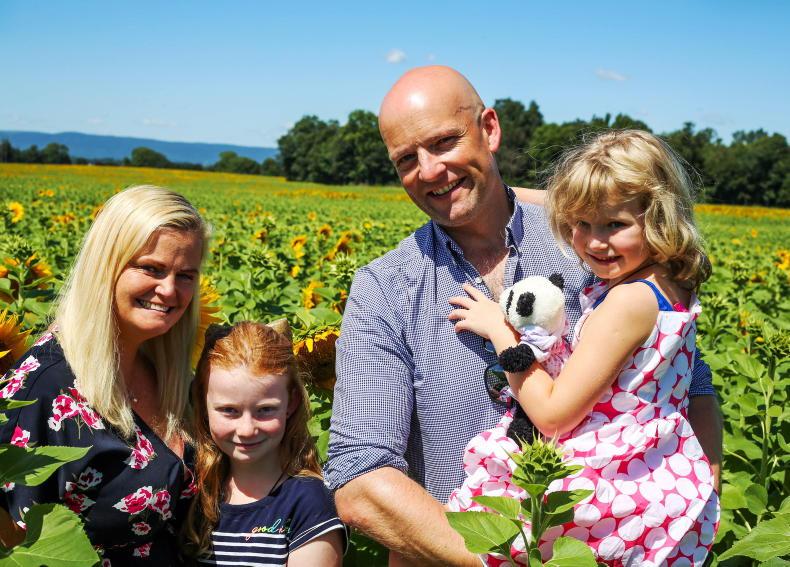
Brian O’Donovan with wife Joanna and daughters Lucy and Erin.
“We are living in a lovely area in Washington called Glover Park which is on the outskirts of Washington as you’re heading towards Maryland. When we arrived the girls made lots of friends and their school has been great, there is a wonderful Irish community in the area. The travel restrictions aren’t quite as limited as they are back home and the DMV, which consists of DC, Maryland and Virginia, is considered one area so we’ve visited beautiful parks, beaches and forests.
“In a weird way, the pandemic has made us really focus and enjoy the area we’re living in because there are no trips home to Ireland and no trans-American flights.”
Brian says one of the perks of the job is that it’s given him time to enjoy dinner time with the girls. “Because of the time difference, I do my last TV piece for the Nine O’Clock News, which is 4pm here. Then things tend to quieten down for a few hours, so I get to carve out that bit of the day to have some downtime which I mightn’t necessarily have back home.”
But don’t think things ever quieten completely. If you hear Brian on Morning Ireland, that’s a pre-record he does in the middle of the night.
Before we finish, I ask: has this been the most exciting time to be Washington correspondent?
If I could have covered any era in American history, it would have to have been the ’60s
“You know, people say I am covering such an interesting time in American history – and I am and I feel privileged to do so. But it’s always been an exciting job.
“Mark Little, the first Washington correspondent, covered the Monica Lewinsky scandal, I mean that was huge. Carole Coleman was here during 911, Robert Shortt covered hurricane Katrina and Catriona Perry was here for the rise of Donald Trump.
“If I could have covered any era in American history, it would have to have been the ’60s – so much happened; JFK’s assassination, Neil Armstrong landing on the moon, Martin Luther King and the civil rights movement. It was such a tumultuous time, it must have been fascinating to cover.
“Of course, there was no such thing as the RTÉ Washington correspondent then, but since it was created, from the ’90s until now, from a news and journalism point of view, it has been a front-row seat of history. The world is so interested, and Ireland has always been watching.”
Brian’s Reeling in the Years moment

“Probably the stand-out news memory for me, my Reeling in the Years moment as I call it was the day I was standing in front of the White House doing a live for the Nine O’Clock News when all hell started breaking lose.
“We didn’t know what was going on, and suddenly the state helicopter arrived to take Donald Trump to hospital. He had been diagnosed with coronavirus. He got sick very quickly, and suddenly, no matter what side you were on, whether you loved him or hated him, there was a sense that this was the President of the US and a united hope that he was all right.
“In all, the drama and politics and election, it was that human moment that stood out.”
Just like the American president, the RTÉ Washington correspondent is a four-year term. “Will you be seeking re-election?” we joke with Brian O’Donovan, the Cork man who has added his own dynamic flair to the role.
“Four more years, four more years,” he laughs, indicating the many Donald Trump rallies he has covered. “I don’t believe it’s possible. This is a four-year job, a four-year adventure.”
An adventure it certainly has been. When Brian headed stateside with his wife Joanna and their daughters Lucy (11) and Erin (eight) at the beginning of 2018, he knew that covering Donald Trump’s presidency would be interesting to say the least.

Brian O’Donovan with wife Joanna and daughters Lucy and Erin.
The reality is that he’s has had a front-row seat to watch history in the making.
Tides turning
Reflecting on his time in the role and the unpredictable nature of US politics, Brian says it was around this time last year that the tides started to turn for Donald Trump.
“In January of last year, I firmly believed Donald Trump was in with a very good chance of being re-elected. After all, we didn’t have a clear democratic candidate. At one stage, we thought it was going to be Bernie Sanders and then Pete Buttigieg won the first caucuses in Iowa. Joe Biden wasn’t doing well at all.
“And then, in the middle of this, you had Donald Trump with this booming economy. On the ground, I could see things were going well for him, people were happy.”
Then COVID-19 hit. “His handling of it was hugely criticised. He didn’t take it seriously at the start. There were crazy suggestions of ingesting bleach and then, through the really tumultuous summer of the Black Lives Matter movement when we saw such huge political unrest, Joe Biden emerged.”
Brian says that, even watching the White House drama unfold in front of his eyes, the sheer scale of unacceptance of the election results was a surprise.
Storming the Capitol
One of the days that will stand out for him as Washington correspondent is 6 January 2021: the storming of the Capitol. On that morning, Brian tweeted: “We can expect plenty of drama today when members of Congress meet to formally count the #ElectoralCollege votes and confirm @JoeBiden’s election win.” But he admits the scale of drama really was unprecedented.
“My cameraman Murray Pinczuk (a great guy from Maryland) and I started the morning with Donald Trump’s big speech outside the White House. Everyone we talked to was convinced the election had been stolen, that a wrong had been committed. Many had a belief that Trump had something up his sleeve, he was the real winner, he’s a clever guy and he is going to sort this.

Brian O'Donovan with cameraman Murray Pinczuk.
“Afterwards, we went back to the office to edit our piece for the Six One News and just as we were getting ready to head out, we saw the first of the storming of the Capitol building, we ran down the Mall and there were lots of police cars and unrest.
“I had been at lots of Trump rallies before that and, you know, Trump would do the whole spiel about the media and fake news, and ‘let’s boo the media’, which they would do. But afterwards when we talked to the people in the crowd, they were perfectly nice. It was like a pantomime of sorts.
“But that day and in the weeks leading up to it, I felt a different tone. There was anger, disillusionment, disappointment and real frustration. That day, the hope that he had something up his sleeve and the subsequent disappointment when people realised the result wouldn’t be overturned was palpable.”
Which led to one of the most unique inaugurations ever in the US: an inauguration without a crowd. “Two-hundred thousand fluttering flags representing the 200,000 people that usually attend the inauguration. It was quite a striking scene, all those flags on this beautiful long stretch of grass that leads to the Capitol building. But what was also striking was the noise. It was quite a windy day so you could hear the flags but, other than that, it was quiet – no people, no crowds.
“I know it’s a cliché to say it was a year like no other but it really was an inauguration like no other.”
A return to ‘normal’
Since Joe Biden has been sworn in as the 46th President of the United States, life as Washington correspondent has changed.
“The drama has gone out of it a bit. Trump was certainly a very interesting, unpredictable, even exciting president to cover. Your day could be dictated by a tweet. I’d wake up, check the Twitter feed and see what he has said today – has someone been fired or hired?
It’s the Washington correspondent but it’s really the North America correspondent
“That would be the agenda for the day. You never knew what was going to happen next when he stepped up on that podium.
“But, traditionally, the role is far broader than just covering the president’s day-to-day movement. It’s the Washington correspondent but it’s really the North America correspondent. You’re covering everything from the White House to the Oscars. Since Biden took the presidency, a calmness has descended. That’s not to say that the rest of my time here in Washington isn’t going to be busy – there’s the pandemic, the rollout of vaccines, and the economy has been decimated by coronavirus.
“But there is a switch away from: ‘What did the president say today?’ From speaking to other journalists, it’s more of a return to normal, whatever normal is in Washington.”
Behind the cameras
Perhaps I’ve watched too many episodes of the West Wing but I am itching to ask: what’s life really like behind the cameras?
“You know, I still get the buzz. When you come in the gateway on the North Lane of the White House, there is an area called Pebble Beach. You’ve got all these tents set up, one after the other with all the reporters in a line on the lawn devoting their lives to camera. And when there is a big story breaking, you can just feel the energy, it’s electric.
“Getting into the press room is trickier these days because of restrictions. Before the pandemic, as long as you had the press accreditation, there was no limit, they would pack the journalists in – but obviously that can’t be done at the moment.
The American journalists are obviously very focused on the American story and it moves so quickly
“One of my favourite times covering the White House has been St Patrick’s Day when colleagues from home would come over. We’d be taking selfies in front of the White House and they were so excited, which made me excited all over again. There is definitely a buzz to it all, being in this very cool place that you see so much of on TV.”
It’s the other international correspondents who are Brian’s journo buds in Washington. “The American journalists are obviously very focused on the American story and it moves so quickly. But, like myself, the foreign journalist is looking for a different angle, a different slant that is relevant to their audience, so it’s always helpful to chat to them.
“The BBC is in the same building as us but, funnily enough, I met some journalists through my daughter’s school. Typical, isn’t it?” he laughs.
“The Czech and Norwegian Washington correspondents and Reuters journalist Aram Rostom all have kids in my daughter Erin’s class. The part of Washington we are in has lot of diplomats and journalists, so you get to know them.”
Life stateside
Life in Washington has of course not been what Brian and Joanna anticipated due to the pandemic and, like here in Ireland, the girls have been home-schooled for most of the last year.
On our Zoom call, Brian points behind him: “Do you see those school posters? Our basement has gotten much more use than we anticipated. It’s become a classroom/home office. Joanna is a primary school teacher and she has been great home-schooling the kids.

Brian O’Donovan with wife Joanna and daughters Lucy and Erin.
“We are living in a lovely area in Washington called Glover Park which is on the outskirts of Washington as you’re heading towards Maryland. When we arrived the girls made lots of friends and their school has been great, there is a wonderful Irish community in the area. The travel restrictions aren’t quite as limited as they are back home and the DMV, which consists of DC, Maryland and Virginia, is considered one area so we’ve visited beautiful parks, beaches and forests.
“In a weird way, the pandemic has made us really focus and enjoy the area we’re living in because there are no trips home to Ireland and no trans-American flights.”
Brian says one of the perks of the job is that it’s given him time to enjoy dinner time with the girls. “Because of the time difference, I do my last TV piece for the Nine O’Clock News, which is 4pm here. Then things tend to quieten down for a few hours, so I get to carve out that bit of the day to have some downtime which I mightn’t necessarily have back home.”
But don’t think things ever quieten completely. If you hear Brian on Morning Ireland, that’s a pre-record he does in the middle of the night.
Before we finish, I ask: has this been the most exciting time to be Washington correspondent?
If I could have covered any era in American history, it would have to have been the ’60s
“You know, people say I am covering such an interesting time in American history – and I am and I feel privileged to do so. But it’s always been an exciting job.
“Mark Little, the first Washington correspondent, covered the Monica Lewinsky scandal, I mean that was huge. Carole Coleman was here during 911, Robert Shortt covered hurricane Katrina and Catriona Perry was here for the rise of Donald Trump.
“If I could have covered any era in American history, it would have to have been the ’60s – so much happened; JFK’s assassination, Neil Armstrong landing on the moon, Martin Luther King and the civil rights movement. It was such a tumultuous time, it must have been fascinating to cover.
“Of course, there was no such thing as the RTÉ Washington correspondent then, but since it was created, from the ’90s until now, from a news and journalism point of view, it has been a front-row seat of history. The world is so interested, and Ireland has always been watching.”
Brian’s Reeling in the Years moment

“Probably the stand-out news memory for me, my Reeling in the Years moment as I call it was the day I was standing in front of the White House doing a live for the Nine O’Clock News when all hell started breaking lose.
“We didn’t know what was going on, and suddenly the state helicopter arrived to take Donald Trump to hospital. He had been diagnosed with coronavirus. He got sick very quickly, and suddenly, no matter what side you were on, whether you loved him or hated him, there was a sense that this was the President of the US and a united hope that he was all right.
“In all, the drama and politics and election, it was that human moment that stood out.”








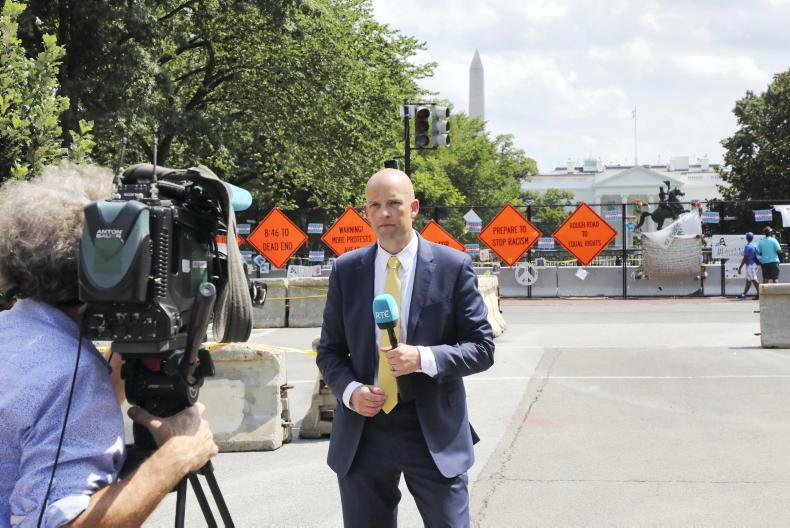
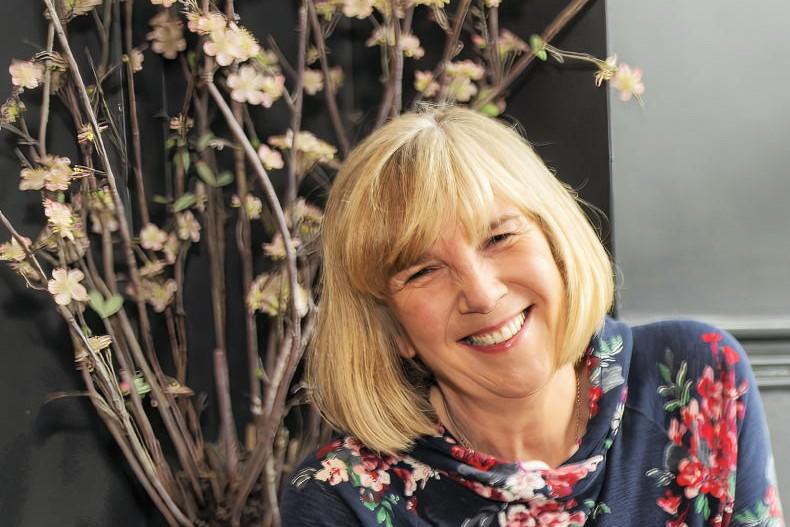

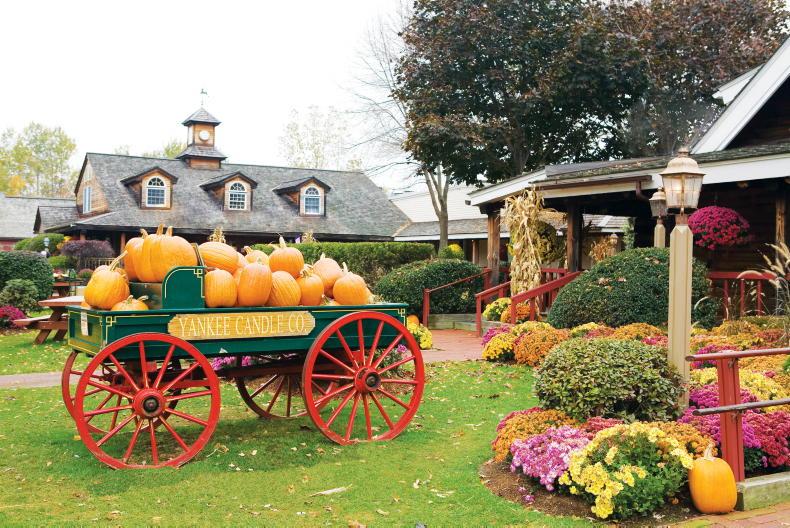
SHARING OPTIONS